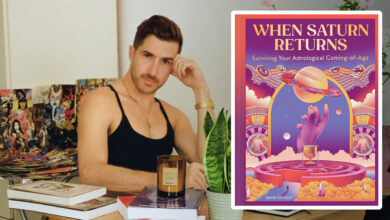
Did God Die on the Way to Houston?
A Queer Tale: A Work of Theological Fiction by David Myers
Did God Die on the Way to Houston?
A Queer Tale: A Work of Theological Fiction
by David B. Myers /Publisher: Wipf & Stock. Published: July 2020.
Sellers: Amazon, Barnes & Noble online, & the publisher. $25
Book Preview
There is a long history of religions condemning LGBTQ human beings, with tragic consequences. Many who identify as queer and trans have, over the centuries, felt rejected by God and, because of this, experienced debilitating shame about who they are.
There is also a long history of religion being used to justify racism, with some Jewish, Christian, and Muslim slave owners arguing that black pigment was a sign of being cursed by God to a life of slavery—and of course racism continued to be a serious problem after the Civil War, with, as we well know, the devaluation of black lives continuing to this very day.

It took until 1995 for the Southern Baptist Convention, the largest Protestant denomination in this country, to apologize for its support of slavery and segregation.
And of course, there is an equally long history of religions devaluing and subordinating women, claiming this is God’s will. Many religious traditions continue to support the devaluation and male domination of women. For much too long, it has appeared that God was on the side of bigots of every stripe. Maybe it is time to imagine a different God.
What if you were to encounter a young ebony same-gender loving woman, wearing a Black Lives Matter T-shirt, who claimed that she was once God? What if she were to tell you a story about a God Who has always lovingly affirmed and equally valued all human beings, including those who are queer, black, and female. Imagine further that she claims the proof of this is that God has now taken on these identities in an act of supreme divine affirmation.
This woman, calling herself Shekhinah (a Hebrew term that means “the presence of God in the world”), tells a strange tale of a God Who, at creation, 14 billion years ago, irreversibly gave up power over the world out of respect for human freedom. Unfortunately, things did not turn out well: human beings misused their freedom to practice cruelty, bigotry, genocide, etc. Shekhinah tells us God ultimately decided that She could no longer remain a powerless witness to massive social injustice.
She claims that God could make a difference in the world only by becoming a human being—but that meant the death of God. So God became a human being in order to join in the fight against all forms of injustice.
Finally, Shekhinah asserts that God chose Houston as the place to begin a global struggle against such evils as homophobia, transphobia, racism, and misogyny—and for social justice—because She believed that anything is possible in Houston! Even if we do not buy Shekinah’s strange theological tale—and of course most of us will not—we can still celebrate and say “amen” to her vision of a God Who is truly affirming, loving, and compassionate: a God Who, by the very way God chose to become embodied, says yes to identities and behaviors that bigots have treated so hatefully.
This queer tale by a queer storyteller in effect constructs a liberating and transgressive theology. The book is also a celebration of the life and work of an African American who was an early lesbian social activist, one of the first truly intersectional radicals: Audre Lorde. She is Shekhinah’s inspiration.
In the last chapter, titled Audre Lorde, Shekhinah shares Lorde’s radical vision of a truly meaningful life, one that sees individual liberation as inseparable from the liberation of everyone who is oppressed.
Did God Die on the Way to Houston? is available online at Amazon and Barnes & Noble bookstores.
David B. Myers, who identifies as bi, is a retired professor of philosophy (Minnesota State University). BA: University of Houston; PhD: University of Texas at Austin. (Both degrees are in philosophy.) He grew up in Houston and has always felt queer in countless ways.










